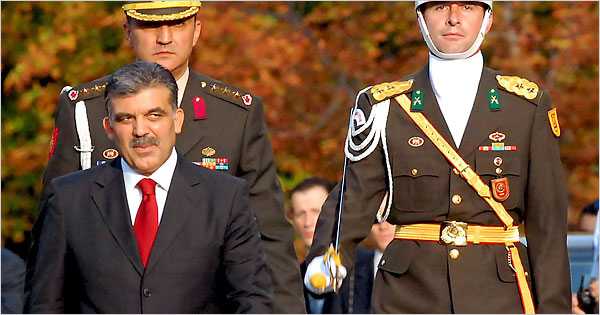US President Barack Obama says plans by a small church to burn copies of the Koran on the anniversary of 9/11 are a “recruitment bonanza” for al-Qaeda.

Mr Obama said if the burning went ahead in Gainesville, Florida, it could endanger US military personnel serving in Pakistan and Afghanistan.
The plan has drawn widespread international condemnation.
Interpol has issued a global alert, warning the burning could provoke “violent attacks on innocent people”.
The US State Department has advised American citizens abroad to be on the alert for possible attacks and to avoid areas where demonstrations might take place.
Terry Jones, the pastor behind the threat, leads a congregation of 50 followers in the city of Gainesville.
He has said the burning would be a way to stand up to terrorism.
In an interview with ABC television, Mr Obama said he hoped Mr Jones “understands that what he’s proposing to do is completely contrary to our values as Americans, that this country has been built on the notion of freedom and religious tolerance”.
“And as a very practical matter, I just want him to understand that this stunt that he is talking about pulling could greatly endanger our young men and women who are in uniform,” the president said.
“Look, this is a recruitment bonanza for al-Qaeda. You could have serious violence in places like Pakistan and Afghanistan. This could increase the recruitment of individuals who’d be willing to blow themselves up in American cities, or European cities,” he said.
“I hope he listens to those better angels and understands that this is a destructive act that he’s engaging in,” the president said.
Later on Thursday, US officials said they was considering contacting Mr Jones directly to urge him to reconsider his plans.
Mr Jones had told USA Today he could potentially cancel his plans if officials spoke to him directly.
Defence Secretary Robert Gates was considering “taking this unusual measure of calling this pastor and trying to convince him that it is not the right thing to proceed with,” said Pentagon press secretary Geoff Morrell.
‘Diseased mind’
Mr Jones said on Wednesday that his plan to burn the Islamic holy book was intended to draw attention to his belief that “something’s wrong”.
“It is possibly time for us in a new way to actually stand up, confront terrorism,” Mr Jones told reporters outside his church.
US officials say they cannot intervene as the church’s actions would probably be protected by the US constitution’s guarantee of freedom of speech.
Interpol, the international police organisation, has issued an alert to all of its 188 member states, warning of “a significant threat to public safety”.
“If the proposed Koran burning by a pastor in the US goes ahead as planned, there is a strong likelihood that violent attacks on innocent people would follow,” it said.
The agency said it was acting partly in response to a request from the Pakistani Interior Minister, Rehman Malik.
Earlier, Pakistan’s President Asif Ali Zardari said in a statement that “anyone who even thought of such a despicable act must be suffering from a diseased mind and a sickly soul”.
“It will inflame sentiments among Muslims throughout the world and cause irreparable damage to interfaith harmony and also to world peace,” he said.
Interpol concern
Mr Zardari’s comments echoed a chorus of condemnation from both Muslim and non-Muslim countries.
Malaysia called it a heinous crime, while Indonesia said it would damage relations between Islam and the West.
In the UK, Downing Street said it would not condone the burning of any book.
“We would strongly oppose any attempt to offend any member of any religious or ethnic group. We are committed to religious tolerance,” said a spokesman for Prime Minister David Cameron.
The plan has also sparked condemnation from Iran, the Vatican, Nato and the top US Afghan commander.
US Secretary of State Hillary Clinton called it “disgraceful” while the Organisation of the Islamic Conference (OIC), which represents more than 50 states and promotes Muslim solidarity, said Mr Jones was following an “outrageous path of hatred”.
“The culture of peaceful co-existence and intercommunal and inter-religious tolerance that the international community is trying to achieve is under threat from marginal and extremist fanatics,” said OIC secretary general Ekmeleddin Ihsanoglu.
On Monday Gen David Petraeus, the top US commander in Afghanistan, warned troops’ lives would be in danger if the church went ahead with its bonfire.
The website of Mr Jones’ church was no longer accessible on Thursday, after the company hosting it withdrew it from the internet.
Rackspace told the AFP news agency the site had “violated the Offensive Content section of its Acceptable Use policy”.
Muslims consider the Koran to be the word of God and insist it be treated with the utmost respect. Any intentional damage or show of disrespect to the holy book is deeply offensive to them.
BBC









